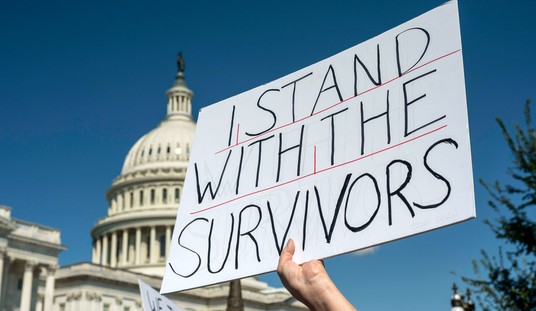The public seems greatly confused by the new airport screening procedures and with good reason. However, a CBS survey was recently taken of 1,137 randomly selected people with landline or cell phones and it was concluded that:
Americans overwhelmingly approve of the use of full-body digital x-ray machines — a new technology in use at some airports in the U.S. Most, meanwhile, do not approve of racial or ethnic profiling — a practice not in place.
The sample size and selection methodology seem reasonable. However, the following questions apparently were not asked: “Have you or an immediate family member flown on a commercial airliner in the United States since November 1, 2010?” and “Do you or an immediate member of your family intend to fly on a commercial airliner in the United States in the near future? If not, have your plans been changed on account of recent changes in airport security procedures?” A breakout of the data as provided by the Yes and No respondents to these questions would have made the survey far more informative.
The report of the survey speaks of “two potentially inconvenient and invasive practices” at airports. However, the reported question asks only about the new “‘full body’ digital X-ray machines.” No question was reported about the second and certainly more invasive of the “two” techniques, presumably the “enhanced pat-downs.” If a question was asked about the latter, the results were not reported.
As to “profiling,” the question was whether it would be justified or unjustified for people of “certain racial or ethnic groups to be subject to additional security checks at airport checkpoints.” Again, questions about recent or anticipated travel by airline in the United States and cross tabulations of the responses under those categories would have made the survey report more useful. As to profiling based solely on race or ethnicity, to which the survey appears to relate, my answer would have fallen into the “not justified” category.
Had the question been about additional security checks based on perceived religion, race, ethnicity, age, and conduct which would appear to a reasonable observer trained in interpreting conduct, body language, and conversation to be “abnormal and suspicious,” my answer would have fallen into the “justified” category. Like it or not and quite independently of race and ethnicity, far more young Islamists than elderly Methodists have, during the twenty-first century, engaged in terrorist activity as encouraged by their religious leaders and teachings; those facts should be part of the mix to be considered, even though I guess it could be argued that since there have been no terrorist attacks involving airlines in recent years by elderly Methodists, TSA (Transportation Security Administration) procedures have functioned quite well.
There was another recent poll taken by Rasmussen on November 15 and 16. One of the questions asked was:
Some people say that there is a natural tension between protecting individual rights and national security. In the United States today, does our legal system worry too much about protecting individual rights, too much about protecting national security, or is the balance about right?
The results were that:
As the controversy over new airport body scanners escalates, voters feel more strongly than ever that the U.S. legal system is more protective of individual freedoms than it is of the nation’s overall security.
I would have found it impossible to provide a meaningful answer, since there is no way to know what “individual freedoms” were meant. Fourth Amendment prohibitions against highly invasive electronic and sometimes manual searches of one’s person without probable cause? “Discriminatory” enhanced security measures based on perceived religion, race, ethnicity, and suspiciously abnormal behavior as noted above or some combination of those factors? How about based on behavior comparable to that attributed to the flying imams in November of 2006?
I am far more concerned about what I consider to be violations of our freedoms specifically guaranteed by our Constitution than by notions of bureaucratic convenience and political correctness. That is the principal reason I support gun rights. I don’t own a firearm and never have; I don’t want one enough to bother with the hassle and expense involved in getting one. Doing so legally without paying high governmental fees and in less than a year is nearly impossible here in Panamá. That does not bother me very much, since I am not Panamanian and the Panamanian Constitution does not afford that right. The U.S. Constitution does, and every time one of its protections is diminished the likelihood that others will also be diminished increases. I don’t think the proper question is:
Would you rather risk being blown out of the sky than have your body scanned or your privates groped?
It strikes me that a better question would be:
Would you prefer being protected by effective and constitutionally acceptable procedures or less effectively by having the constitutional rights of all users of commercial airlines violated randomly?
It has been said in at least lukewarm defense of the new TSA procedures,
[T]here are those who say we ought to rely more on intelligence, especially human intelligence. I don’t know what they mean by that, but I’m not sure how much more could be done. By its very nature, intelligence cannot be 100 percent effective, especially where terrorists are concerned. Human intelligence, in particular, is very difficult because it generally involves some kind of penetration, and getting someone inside a terrorist organization is extremely difficult.
No procedures can be 100 percent effective where terrorists are concerned. That is true of the new TSA procedures; they are more reactive than proactive and probably won’t detect devices secreted in anal cavities, for example. Terrorists have shown themselves to be quite clever in devising new techniques. That seems an insufficient defense of the new TSA procedures and a valid argument for changing them. As to penetration of terrorist organizations, that is not something I had peviously heard suggested be done at airports or by the TSA; I understand that it is being done and hope it is being done effectively by our domestic intelligence organizations. I also hope that the information so developed is shared to a greater extent than has often been the case among those organizations and also with relevant airport security entities. As to “human intelligence” in the context of airport security, I use the term to mean use of intelligence information developed by those organizations, plus common situational awareness by airport security personnel, enhanced by training in what to look for.
And then there is this comment:
I suspect that a majority of the people who so strongly object to what TSA is doing agree with the idea that there’s a War on Terror and support the wars in Iraq and Afghanistan. However, they don’t want their taxes raised to support the wars, and they don’t want to be personally inconvenienced in any way. But what the heck — I’m sure most of them have “support the troops” decals on their vehicles.
I agree that there is a War on Terror and think it has to be won, not only in Iraq and Afghanistan. When the government evades Fourth Amendment and other constitutional protections, we take strides toward losing that war and become our own enemy. As to spending tax money to fight wars, whether on terror now or against Japan and Germany years ago, I have heard few significant objections from conservatives and mainly complaints about inefficient utilization of resources and employment of dubious strategies. My complaints about the TSA procedures focus on their inadequacy and the constitutional concerns they raise rather than on the money spent or inconvenience they impose; mere inconveniences do not rise to the level of infringements of the Constitution.
Given a choice, the focus should be on detecting bad people to a greater extent and on detecting bad things to a lesser extent.









Join the conversation as a VIP Member